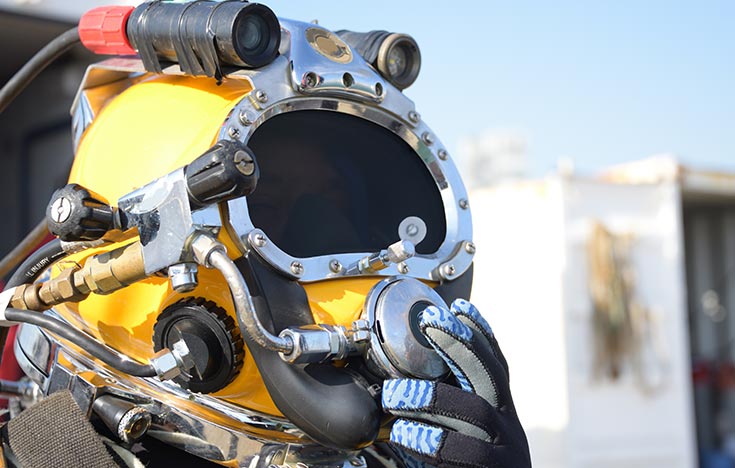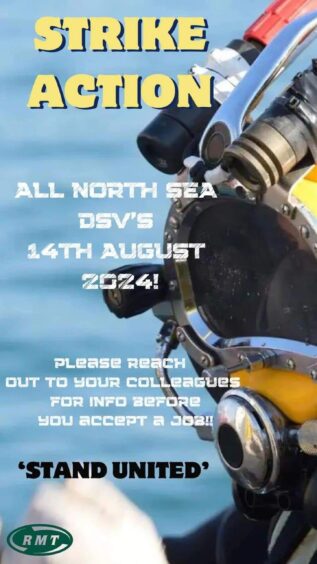
RMT Union’s members working under the Offshore Diving Industry Agreement (ODIA) have voted in favour of strike action which is set to span two months.
It is unclear what form the action will take when it kicks off next Wednesday, 14 August. The union, which has declined to confirm how many divers will be taking part, has said strike actions will come to an end on 14 October.
RMT has also said it remains available for discussions to negotiate a settlement.
The union says that its members “voted overwhelmingly in favour of strike action” amid a pay dispute.
RMT general secretary Mick Lynch said that members’ pay had fallen behind in real terms in 2015 when they accepted not getting a pay rise in favour of protecting jobs during the downturn in oil and gas.
Lynch said: “During the same period, they sacrificed all but two bank holidays on the basis that this would redressed when things improved – this has never happened.”
The union’s general secretary has also bashed the ODIA’s “measly £130k death in service benefit” as his members work in a dangerous field.
In addition to the union’s ODIA members, those working as “dayraters” at Boskalis Subsea Services, KD Marine, Subsea 7, and TechnipFMC UK also backed strike action.
They voted in an e-referendum where they expressed “overwhelming support for those divers who were balloted”.
When asked RMT declined to share details on the number of workers taking part industrial action.
The union claims that “despite continued negotiations,” there has been no improvement on the last offer from the ODIA signatories.
Katy Heidenreich, OEUK’s supply chain and people director said: “Industrial action only adds to the offshore energy sector’s challenges as it strives to attract fresh investment in the North Sea to protect jobs in the long term so our skilled workforce can play their key role in supporting the transition to low carbon energies.
“Industrial action does not offer a solution and we would urge all parties to continue talking and find a resolution so that we can deliver an enduring future for the UK North Sea which supports hundreds of thousands of jobs.”
‘The diving industry is extremely hazardous’
The union argued for increased wages as its members work in hazardous environments which impacts their health.
“According to some studies life expectancy for some commercial divers can be as low as 40 years with retirement or redeployment into lesser roles at the age of 50,” Lynch added.
“The diving industry is extremely hazardous with life expectancy as low as 40 years, yet they have a measly £130k death in service benefit to protect their families should anything happen to them.
“The high turnout in favour of strike action sends a strong signal to the employers that our members are determined to achieve a negotiated settlement.”
In the build-up to this year’s general election more than 60 climate organisations signed an open letter sent to all party leaders on Thursday based on a report backed by leading trade unions.
Signatories called for a UK-wide industrial strategy, including substantial investment in domestic manufacturing and skills, expansion of publicly owned energy, and reorganising the tax system for public good.
Lynch backed this report and said that RMT would work with environmental groups and governments “to guarantee fair treatment, job security, and new opportunities for oil and gas workers”.

 © Supplied by RMT
© Supplied by RMT